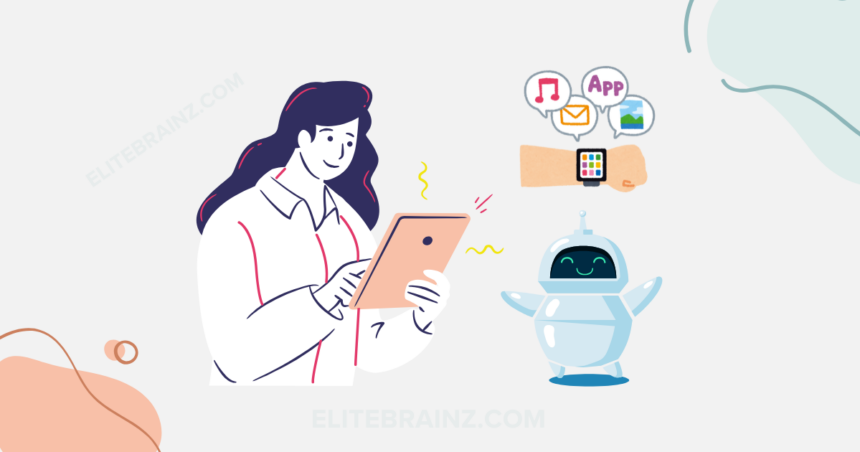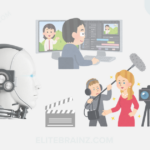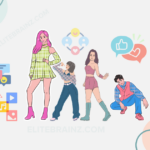Technology has become an integral part of our lives, influencing the way we work, communicate, and even relax. Its rapid evolution has transformed the modern lifestyle in ways that were unimaginable a few decades ago. From the devices we use daily to the systems that power our societies, technology is reshaping how we interact with the world and each other. Here’s a closer look at how technology is changing modern lifestyles.
Revolutionizing Communication
The way we communicate has undergone a dramatic shift due to technology. Traditional methods like letters and landline calls have been replaced by instant messaging, video calls, and social media platforms.
Impact:
- People can connect with anyone, anywhere in the world, in real-time.
- Relationships are maintained despite geographical distances, fostering global communities.
Downside:
- Over-reliance on digital communication can sometimes reduce the depth of face-to-face interactions.
Shaping Work and Productivity
Technology has transformed the workplace, introducing tools and systems that make tasks more efficient and flexible. Remote work has become a norm, thanks to advancements in communication technologies and project management software.
Impact:
- Employees enjoy greater flexibility in balancing work and personal life.
- Businesses save on overhead costs with remote operations.
Downside:
- The blending of work and personal life can lead to burnout without clear boundaries.
Enhancing Entertainment Options
Entertainment has become more accessible and personalized due to streaming services, gaming platforms, and social media. People can now watch, listen, and play whatever they want, whenever they want.
Impact:
- A vast array of content is available on-demand, catering to diverse interests.
- Virtual and augmented reality experiences are creating new ways to engage with media.
Downside:
- The abundance of content can sometimes lead to overconsumption and reduced physical activity.
Transforming Healthcare
Technology is revolutionizing the healthcare sector, improving diagnosis, treatment, and patient care. Wearable devices, telemedicine, and health apps enable individuals to monitor their health and seek care conveniently.
Impact:
- Faster and more accurate medical diagnoses.
- Greater accessibility to healthcare services, even in remote areas.
Downside:
- Concerns about data privacy and the reliance on digital tools over human expertise.
Changing How We Shop
Online shopping has transformed consumer behavior, offering convenience and variety at the click of a button. E-commerce platforms and digital payment systems have made shopping faster and safer.
Impact:
- Consumers can compare prices and read reviews easily before purchasing.
- Small businesses can reach larger audiences through online stores.
Downside:
- The loss of traditional retail experiences and concerns over environmental impacts of increased packaging and shipping.
Advancing Education
Education has become more accessible and interactive thanks to technology. Online courses, virtual classrooms, and educational apps provide opportunities for lifelong learning.
Impact:
- Students can learn at their own pace and access resources from anywhere.
- Virtual reality and gamification are making learning more engaging.
Downside:
- Not everyone has equal access to the necessary devices and internet connections, creating a digital divide.
Improving Daily Convenience
From smart home devices to ride-sharing apps, technology has simplified daily tasks. Automated systems allow people to control their homes and manage schedules with ease.
Impact:
- Tasks like grocery shopping, cleaning, and commuting are made faster and more efficient.
- Time-saving technologies provide more time for leisure and family.
Downside:
- Dependence on technology for basic tasks can reduce self-reliance.
Influencing Social Behavior
Social media and online platforms have redefined how we present ourselves and interact with others. People share their lives online, influencing trends and societal norms.
Impact:
- Platforms provide a space for creativity, self-expression, and advocacy.
- They influence fashion, lifestyle, and cultural trends on a global scale.
Downside:
- The pressure to maintain a curated online persona can affect mental health and self-esteem.
Redefining Travel and Exploration
Travel planning and navigation have been revolutionized with apps and websites offering real-time information. Virtual tours allow people to explore destinations from the comfort of their homes.
Impact:
- Easier trip planning and seamless navigation with GPS technology.
- The ability to explore cultures and experiences without leaving home.
Downside:
- The over-reliance on technology may diminish the spontaneity of travel.
Promoting Sustainability
Technology is playing a key role in promoting sustainable living. Innovations like energy-efficient appliances, renewable energy sources, and smart city initiatives are helping reduce the environmental footprint.
Impact:
- Smart devices allow for efficient energy consumption.
- Apps encourage sustainable habits like recycling and reducing waste.
Downside:
- The production and disposal of technological devices contribute to e-waste.
Conclusion: Technology has undeniably reshaped modern lifestyles, offering convenience, efficiency, and endless opportunities for growth and connection. However, with these advancements come challenges, such as the need to balance digital and real-world experiences, address privacy concerns, and ensure equitable access for all.
By embracing technology mindfully and addressing its drawbacks, we can harness its potential to improve our lives while maintaining a healthy balance. The future promises even more innovations that will continue to redefine how we live, work, and interact.









